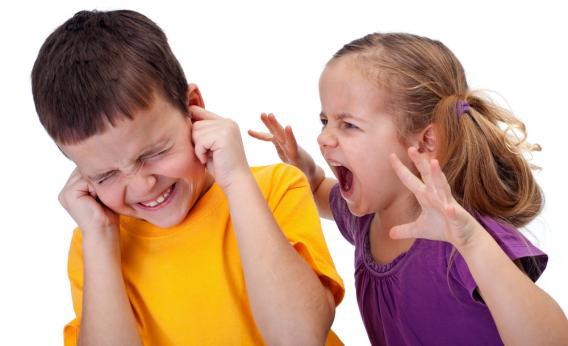Most people with siblings can remember an instance where their arguments escalated to inappropriate levels. I recall slamming my older brother’s door so hard when we were teenagers that I splintered the door frame. Though some sparring is normal, aggression between siblings can have lasting negative effects—so says a new study in the July issue of the journal Pediatrics. According to the New York Times, one-third of the children in a study of more than 3,000 said they were victimized by a sibling at some point in the past year, and the victimized children reported higher levels of anxiety, depression, and anger.
Other studies have shown that sibling conflict occurs every day for 50 percent of young children, and 80 percent of siblings ages 3-17 reported experiencing at least one violent episode with their sister or brother in the year that study evaluated. So what are parents supposed to do? And how do we know what’s detrimental bullying versus just regular sibling bickering? I asked Slate’s resident bullying expert Emily Bazelon, the author of Sticks and Stones, and she said that the way to figure out if fighting between siblings is reaching the level of bullying is to see if there’s a pattern.
According to Bazelon, you should ask yourself, “Is one kid (or group of kids) on a campaign to make another kid miserable? Is the aggression chronic, and one-way, as opposed to mutual, where the power shifts back and forth?” If the answer is yes, then it’s important to talk as a family about what’s going on—because it’s a whole family dynamic. “It’s not about just focusing on the bully or the victim,” Bazelon says.
While this study should certainly inspire parents to keep an eye on the dynamics at play among their children, Bazelon cautions that most kids recover from sibling aggression. “These studies show that there’s a risk of depression and other negative psychological consequences. That means a higher rate, not that everyone experiences it,” she says. “Fortunately, most kids do bounce back. But it’s important to look out for the kids who have a harder time doing that.” So: No need to freak out. Look out for your more psychologically fragile offspring, but don’t break up every argument over Legos.
